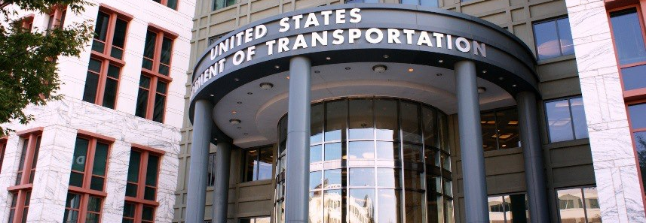Cranky Flier highlights a rulemaking at the Department of Transportation that would define what constitutes an ‘unfair and deceptive practice’. This is more important than you think. The DOT is charged with regulating these practices, but the scope of DOT’s authority over airlines is vague.
Cranky notes that airline lobbying group Airlines 4 America gives examples of where DOT has gone too far (or considered going too far, they withdrew plans to require up front display of a set of fees they deemed relevant wherever airfare pricing is shown – such as through a popup which would have been problematic in mobile to say the least).
A4A would like the Department of Transportation to adopt Federal Trade Commission rules for what’s unfair or deceptive,
First, it would define a practice as “unfair” if it causes or is likely to cause substantial injury, which is not reasonably avoidable, and the harm is not outweighed by benefits to consumers or competition. Second, the proposed rule would define a practice as “deceptive” if it is likely to mislead a consumer acting reasonably under the circumstances with respect to a material issue. Under the proposal, an issue is “material” if it is likely to have affected the consumer’s conduct or decision with respect to a product or service.

Credit: US Department of Transportation
Cranky concludes “if it’s good enough for all the other industries, it should be good enough for the airline industry too.” And that’s where he ignores the broader context of why airline regulation at the federal level is, in fact, different from most other industries.
- Airlines are regulated differently because airlines also are excused from myriad regulations imposed on other industries. The Airline Deregulation Act preempts state regulation. That makes sense – an individual hotel in a state can adapt itself to the rules of that state, but the airline industry would have trouble adhering to a patchwork of regulations imposed by each state. Most consumer protection regulation happens at the state level, but that’s foreclosed in the context of airlines.
- The Supreme Court has even ruled that the Airline Deregulation Act’s preemption even means consumers can’t sue on the basis of common law protections like ‘duty of good faith and fair dealing’. The Court has said if you need redress, go to the DOT, that’s who is charged with sorting out what’s fair… in a way that is not at all like the role of the FTC.
For many years airlines have batted around this idea that they shouldn’t be regulated differently from other industries but it was exactly the deal with deregulation. The federal government would dismantle the Civil Aeronautics Board, which among other things, decided which routes airlines could fly and how much they could charge, but entrusted DOT to consumer protection.
The Department of Transportation has often gotten things wrong. The DOT’s Inspector General found that the agency improperly ignored complaints about frequent flyer programs for instance. The Supreme Court says if you have a problem with a program go to DOT, and when you’d do that DOT would round file the complaint.
Simply adopting the more scaled-back role of the Federal Trade Commission isn’t the answer because other industries have FTC regulation at the federal level, state regulation, and an avenue of redress through the courts.
If airlines want to renegotiate the deal struck with deregulation that they’re regulated more by DOT than other industries are by the FTC – but they’re immune from much state-level regulation and from many lawsuits – that’s fine. The whole bailiwick needs to be revisited, not merely the DOT constrained.
Comments on this rulemaking are open through April 28.


US fliers have so many protections already that we need to scale them back drastically. When an airline chooses to hose you, deal with it.
Welcome to companies attempting to get anything they can through while there is a R in office. Might as well shoot for the sky, because if they don’t now, they will end up VERY screwed. I think its slimy, but it doesn’t surprise at all.
@Christian, what would be a few of the protections that need to be scaled back drastically?
Cranky gives good information, but readers need to keep in mind that he is in bed with the airline industry (especially AA) and factor that in when reading his articles.
More importantly, which US airlines are funding A4A?
@Michael – And they say satire is dead. For a first world country, we are woefully short on protections. Hence the dry humor.
Whoops, sorry Christian!
The Republicans would happily strip all consumer rights to favour their corporate paymasters. Sad